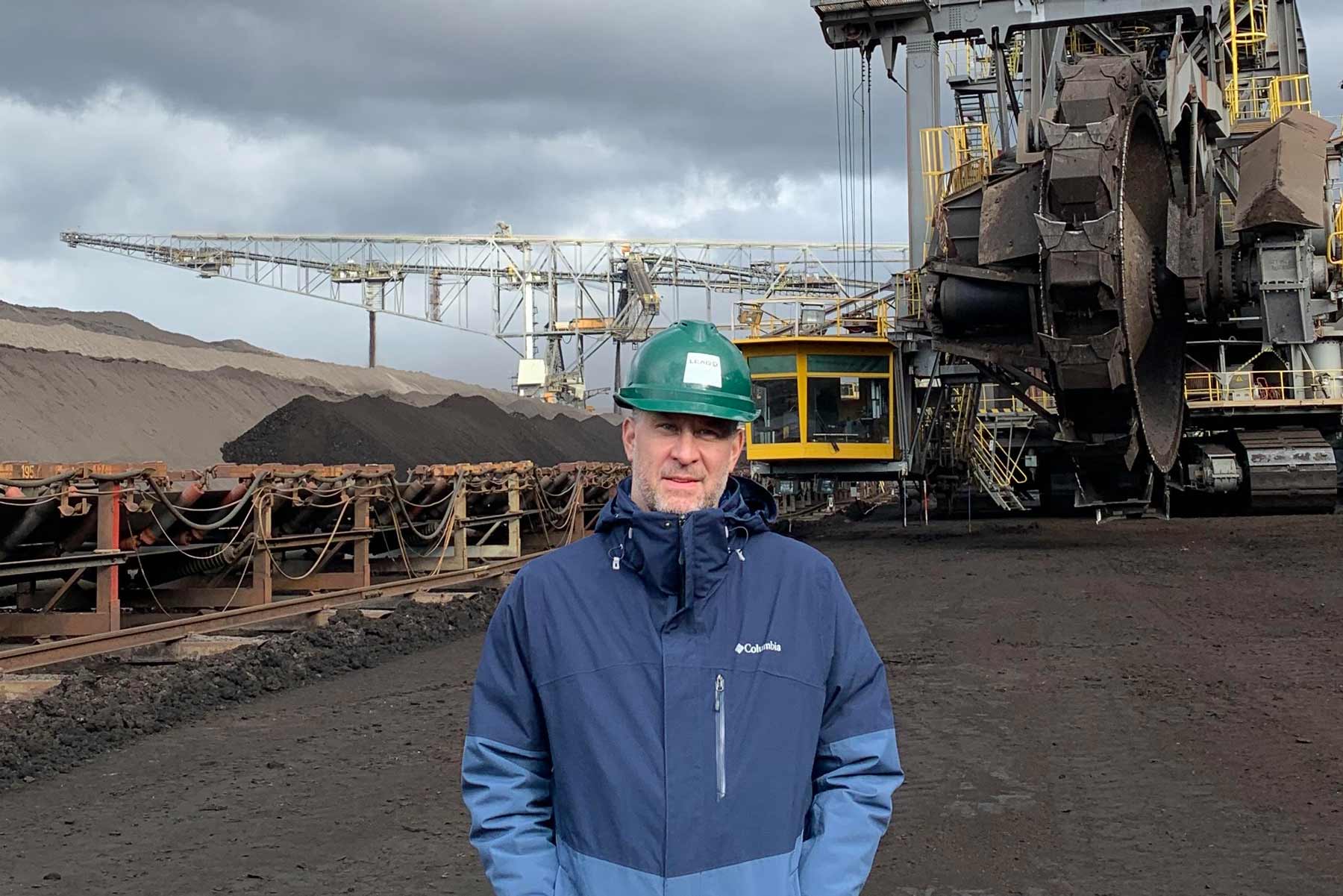Clean Energy Just Makes Sense
RMI’s nonpartisan approach helps states move beyond fossil fuels with “just the facts.”
This is an excerpt from RMI's 2022 Annual Report.
Read the full report.
Avoiding catastrophic climate change will require every community's help, even those where climate action is politically controversial. An overwhelming majority of Americans support expanding wind and solar development, some because of climate benefits, and others, including many Republicans, because of economic benefits.
RMI's nonpartisan, apolitical approach has led to some big wins in the past year. North Carolina showed the bipartisan appeal of the energy transition when a major climate and energy bill was passed by a Republican-controlled legislature and signed by a Democratic governor last October. The bill, the Energy Solutions for North Carolina Act, is the first piece of climate legislation in the state in years and mandates greenhouse gas emissions reductions, a step that only 16 states had taken before.
The new law calls for 70 percent reductions in carbon emissions from the electricity sector by 2030, and an end to carbon emissions by 2050. It also creates a competitive market for solar power projects in the state, establishes the voluntary purchase of renewable energy or renewable energy credits by customers, and authorizes bonds to offset the costs of closing the least efficient and most polluting coal-fired power plants.
RMI fueled these bold actions by helping North Carolina's Department of Environmental Quality (DEQ) lead an inclusive stakeholder process that led to the development of a Clean Energy Plan. We and our partners then helped the DEQ to work with another stakeholder group to develop policy proposals and proposed legislation.
In a parallel effort, RMI and our partners helped 15 North Carolina cities and counties explore their clean energy goals through the American Cities Climate Challenge Renewables Accelerator. These local governments' ideas and concerns were brought to the state regulatory commission and were key topics of discussion during the crafting of the bill by the state legislature.
RMI's support also helped Nebraska, another conservative state, set itself up to achieve net-zero carbon emissions in its electricity generation by 2050. As the only state where the major electric utilities are publicly owned and governed, with boards either directly elected by voters or appointed by elected representatives, the utilities' boards are responsive to Nebraskans' views on energy alone, without the influence of all the other political issues that go into elections.
Nebraskans strongly support wind and solar power and voted for utility directors who agreed with them. Major commercial customers in the state also want clean energy — and they let the utilities know. By December 2021, the three largest Nebraska utilities — responsible for 60 percent of the state's retail customers — had set goals that will achieve net-zero carbon by 2050, and RMI facilitated discussions that helped them get there.
RMI and partners worked in Nebraska to help public power representatives understand the range of options available and worked with utility staff and board members to drill down into the economic and technical potential of clean energy.
Notably, an RMI analysis demonstrated that wind and solar projects built before 2030 could deliver more than $1.4 billion in revenue to Nebraska's rural economy. Nebraskans are concerned with rural communities declining and young people moving away. Renewables, and especially wind power, in which Nebraska leads the nation, have helped stabilize those vulnerable communities. It's benefits like those that let RMI move past politics and let the energy transition prove its value.
Gary Thompson, a long-tenured member of the Nebraska Public Power District board said that the information that RMI provided was extremely important. Clean energy technologies are the future he says, “and we've got to be going that way. It's environmental, it's economic, and it's inevitable.”
Case Study: Coal Country - Ensuring a Just Energy Transition
THE TRANSITION FROM COAL to clean energy is a flood that is becoming a tsunami. And while that’s great for our country and our planet, it can be devastating to communities that rely on coal as their economic bulwark. The closure of a coal mine or a coal plant costs workers their jobs and health insurance, reduces property values and local tax revenues, and leaves communities with unfunded environmental cleanup costs. That’s why RMI developed a fossil fuel community recovery and revitalization framework — to add to the work that has been done by other organizations around the country — that will help policymakers and advocates develop and implement policies to support a fair transition from fossil fuels.
Case Study: Global South - Supporting Climate Leadership
RMI IS SUPPORTING the Government of Indonesia in responsibly transitioning away from coal. Indonesia has 40 GW of coal-fired capacity and 26 GW more in the pipeline; a speedy transition could reduce carbon emissions by a whopping 3.8 gigatons by 2050. RMI is working with the stateowned utility, PLN, and the government to study the early retirement of the first cohort of coal-fired power plants. Bringing our expertise from other areas, we’re analyzing how to decommission and replace these plants with renewables as a demonstration that can be extrapolated to the broader coal fleet. Bringing innovative blended finance tools, we are assessing how to finance the transition with a climate-aligned funding plan for early retirement and replacement of the entire portfolio of coal assets. The expected savings and emissions reductions could be an energy transition model for other developing economies.
Meet Jeremy Richardson, RMI Manager
Jeremy Richardson is passionate about ensuring a just transition for coal communities. Richardson grew up in West Virginia in a thirdgeneration coal mining family. His grandfather died of black lung disease, his father is a retired longwall maintenance foreman for the mines, and his brother still works in the mines today. “Coal communities have always been the lens through which I've seen the climate crisis,” he says.
Richardson joined RMI in January of 2022, after almost 10 years at the Union of Concerned Scientists. “I started out 10 years ago with a passion for how to figure out how coal communities can benefit from the energy transition,” he says. He came to RMI to not only lead that work, but also to think more broadly of what a just and equitable transition means.
“When coal mines are closed, workers and communities feel the hit right away,” he says. “Not only with job loss, which is huge, but also with the loss of local tax revenue. It’s a big deal in places where coal mining or coal plant tax revenue is upward of 50 percent of a county’s or school district’s budget.” There are also longer-term issues, such as comprehensive remediation of the sites and ensuring they’re cleaned up properly. And a big question is how to create new forms of economic development and diversify the economies. Fortunately, there are policy interventions that can ensure that the energy transition uplifts — rather than abandons — coal workers and communities, which Richardson and his co-authors describe in RMI’s Ensuring an Inclusive Energy Transition report.

“Right now, with the Inflation Reduction Act, the Infrastructure Investment and Jobs Act, the CHIPS Act, and the COVID relief bill, we have a once-ina- generation opportunity to drive some success stories,” Richardson explains. “There are resources and policy mechanisms in these laws that taken together can really advance the transition in a way that brings these energy communities along.”
Richardson feels that we are at a pivotal moment. “This is the first time we’re talking about transformative change instead of incremental change, but it will require a lot of work,” he says. “And RMI is well positioned to play a strong role in really driving the transition we want to see.”

"It’s gratifying to know that our support is helping phase out fossil fuels and equitably distribute clean energy benefits throughout communities in the US.”
—Laura Wisland, Program Officer, Climate and Clean Energy program at the Heising-Simons Foundation